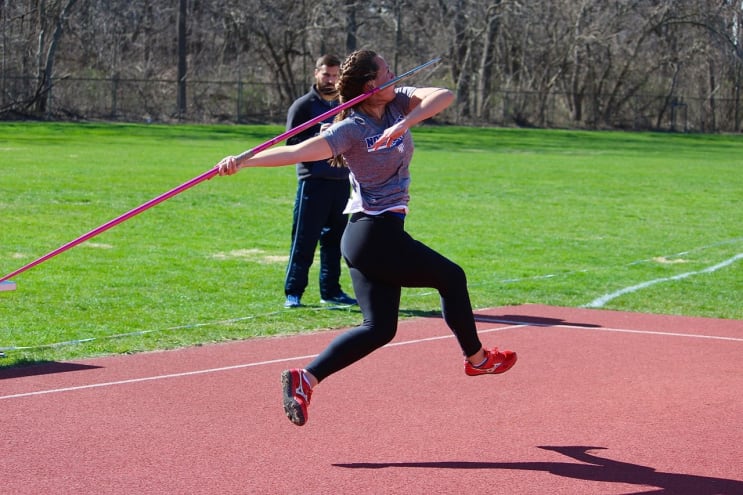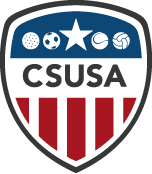Life as a Track & Field Student Athlete in the USA with Elise Grong Ruud

Why did you decide to go to the United States to study as opposed to staying in your home country?
It was after high school. I wanted to go to Australia or the USA. I wasn’t motivated to start studying yet, so I moved to Australia first. I stayed there for around nine months, working different jobs. At the end of that journey, I wanted to go to the US. I had a couple of friends who were track and field students there. I spoke to them about life as a student-athlete. And that’s when I felt ready to try it myself.
How did you decide on attending North Park?
My consultant at College Scholarships USA, Marcus, did his master’s at North Park. He told me all about the school. I had a few other options, but everything Marcus said about North Park made it sound like a really good school. Plus, it was in Chicago, which is the third biggest city in the US. So I thought, why not?
After high school, you decided to take a gap year and go to Australia. Do you think taking this gap year helped instill confidence in yourself before going to the US?
That’s exactly what happened. I was training in Australia, but I wanted to start competing again. I also wanted to experience a new culture and meet new people. That’s why I went to the USA. I felt like there would be so many opportunities there.
What were your first few weeks like settling into the US lifestyle and culture?
I didn’t expect there to be so much paperwork! I wouldn’t advise on rushing the process as there’s so much admin stuff to sort out. I had three amazing years in the US, but the first week of college was a culture shock. You’re living in a dorm, and there’s lots of information to take on board and rules to follow. And the first few track sessions were hard. I wasn’t in the best shape. It was all a bit overwhelming. But then I got to know my coaches, the professors, and my teammates. Then everything started to change for the better.
You started college in January, how did you prepare for going straight into the track and field competition season?
Lots of running and lots of lifting! As I said, I wasn’t in the best shape. So I picked up an injury. But the school had physios you could see for free. They help you with anything. Once I recovered, it took another year or so to really get used to that hard way of training.
What do you think is the difference between Track and Field training in Norway compared to that of the US?
We focus more on technique in Norway. In the US, they do lots of heavy lifting and sprinting. You can sprint three to five days a week. That’s tough training. And the sessions were longer. We’d work out for three to four hours without a break.
I got much stronger and faster. You’re also competing every weekend, so your body gets used to that. I kept getting faster at each big meet and competition.
What was the atmosphere like at training and competitions?
It was fun and supportive. We’d watch each other compete and cheer for each other. There was a strong sense of team spirit. And we had fun at practice. I heard about other schools that were super-serious, where you couldn’t even laugh at training. It wasn’t like that at North Park. We had a great time!
During your time at North Park, you did very well individually, but what in your opinion was your biggest achievement?
Qualifying for the NCAA D3 National Tournament! It was my main goal, and I achieved it. Getting second place in the hurdles at The College Conference of Illinois and Wisconsin (CCIW) athletic conference was also a big deal. The level there is really high. There were so many good athletes there and the atmosphere was incredible.
In the US, they make a big deal out of college sports. Did you ever feel any pressure?
In the beginning, I felt pressure to do well for the school. But then I learned to focus on doing well for myself. I wasn’t at the most competitive school, so there was less pressure. And if you do bad, the coaches and your teammates are always supportive.

You became an Academic All-American, which means you performed exceptionally well on the field and in the classroom. How did you manage to balance athletics practice with school work?
I had high ambitions and wanted to get high grades. So I worked extra hard, especially in the last two years. I learned that it’s OK to brag and be proud of winning awards and doing well. That’s not always the case in Scandinavian countries.
What did you decide to study?
I majored in Business Management.
How did you find being an international student-athlete in the American Collegiate system?
I was worried about attending some classes because my English wasn’t so good. There’s a massive difference between learning and actually speaking English. I told this to one professor, and they said, “Don’t worry. I’ll help you.” We went for a coffee, and he gave me lots of reassurances. That would never have happened in Norway.
Did it feel different being at North Park which was associated with a Christian Church compared to typical schooling in Norway?
It did. We had Bible classes. There were also regular gospel services to attend, which are very different from services in Norway. I used to get very emotional at the gospels. There are lots of singing and inspiring speeches. It was a unique and amazing experience.
What is it like to live in Chicago?
It gets cold in the Winter! One day it was -30°C! We weren’t allowed outside. But Spring starts in early March. Then it’s lovely weather until October. And there are lots of fun things to do and see, including lakes, museums, and lovely restaurants. I can see why people call it the best city in the world.
Aside from Chicago, did you manage to go to any other places in the USA?
I traveled when I could, mainly during the Easter and Thanksgiving break. And I did lots of traveling during the Fall season. I went to Hawaii, LA, North Carolina, and New York.

After graduating from North Park you decided to return to Norway. What are you up to now you are back home?
I’m studying for a master’s in business at school here in Norway, and I’m still doing track with a local club. It’s a bit different from life in the USA. But I’m learning more and gaining new experiences.
It’s great you could use your bachelor’s degree for something back home.
Definitely. Finding a job was hard when I came back because of the COVID outbreak. So I was delighted to get accepted to the masters’. It means I can be a student for two more years.
For other possible student-athletes who may be looking into life as a student in the US, what piece of advice would you give to them?
Like Nike says, “JUST DO IT!” That’s what I did. Plan ahead and make the most of all the opportunities. Embrace the cultural difference; it makes college life a lot easier.
Thank you for sharing your experiences and stories with us. It has been great to catch up and we wish you all the best in the future!
Thank you again for having me. I’ve had a blast!




